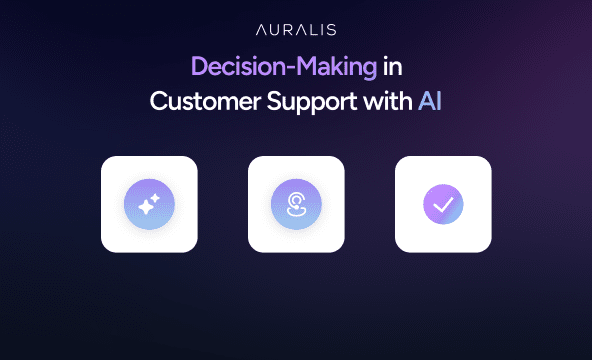AI decision-making support
AI decision-making support is revolutionizing how businesses approach critical decision processes by providing data-driven insights, improving accuracy, and enhancing overall decision-making efficiency. By leveraging the power of artificial intelligence, organizations can enhance their decision-making capabilities, allowing for faster, more accurate, and more effective decisions that drive success and innovation.
One of the key benefits of AI decision-making support is its ability to analyze large volumes of data quickly and accurately. Traditional decision-making processes often involve manually sifting through data, which can be time-consuming, prone to human error, and less efficient. AI, however, can rapidly process vast amounts of data and generate insights in real time. This enables decision-makers to make informed choices without being overwhelmed by complex or voluminous information, ultimately improving decision speed and precision.
AI decision-making support tools are also incredibly effective in predictive analytics. Using machine learning algorithms, these tools can analyze past data to identify trends and predict future outcomes. This predictive capability is particularly valuable in sectors like finance, healthcare, marketing, and supply chain management, where anticipating customer behavior, market fluctuations, or potential risks can make all the difference. AI-powered support helps businesses make proactive decisions based on what is likely to happen, rather than simply reacting to events after they occur.
Furthermore, AI decision-making support can enhance the quality of decisions by removing biases that often influence human judgment. Human decision-making is often clouded by unconscious biases, which can lead to subjective or inconsistent outcomes. AI, however, bases its recommendations solely on objective data, ensuring that decisions are consistent, fair, and transparent. By reducing bias, AI helps businesses achieve more equitable outcomes, particularly in areas like hiring, customer support, and financial decision-making.
AI decision-making support tools also offer improved efficiency by automating routine decisions and repetitive tasks. In business operations, for example, AI can automate decisions related to inventory management, resource allocation, or scheduling, saving time and reducing the risk of human error. By automating these processes, organizations can free up their workforce to focus on more strategic, high-level decisions that require human expertise, increasing overall productivity.
Another critical advantage of AI decision-making support is its adaptability. AI systems are designed to learn and improve over time. As new data is input into the system, AI models can evolve, becoming more accurate and refined in their predictions and recommendations. This continuous learning process allows businesses to make better decisions as they accumulate more data, ensuring that AI remains an effective and relevant tool for decision support in dynamic environments.
In customer service, AI decision-making support can enhance the customer experience by analyzing interactions and recommending the best course of action for support agents. For example, AI can help agents prioritize tickets, suggest relevant solutions, or guide them through complex queries, ensuring that customers receive timely, accurate, and efficient service. This support not only helps improve service quality but also allows businesses to manage a higher volume of customer interactions without sacrificing satisfaction.
AI decision-making support tools can also assist businesses in managing risks by evaluating potential threats or vulnerabilities before they become critical issues. By analyzing data related to market conditions, customer sentiment, or operational performance, AI can help identify risks and recommend appropriate actions to mitigate them. This proactive approach to risk management enables businesses to make informed decisions that minimize exposure to potential dangers and maximize opportunities for growth.
Moreover, AI decision-making support enhances decision quality by providing businesses with deeper insights into their operations, customers, and competitors. With the help of AI, decision-makers can uncover hidden patterns, trends, and correlations within their data that may not be immediately obvious. This deeper understanding allows businesses to make more informed and strategic decisions that align with their goals and objectives.
In conclusion, AI decision-making support is a game-changing tool for businesses seeking to improve their decision-making processes. By leveraging data, predictive analytics, and machine learning, AI enhances the speed, accuracy, and quality of decisions. With its ability to reduce bias, automate routine tasks, adapt to changing conditions, and provide actionable insights, AI helps businesses make smarter, more informed decisions that drive growth, efficiency, and innovation. As AI technology continues to advance, it will become an increasingly integral part of decision-making across industries, enabling organizations to stay ahead in a data-driven world.

- Articles
-
 Amy
Amy
- 7 min read
